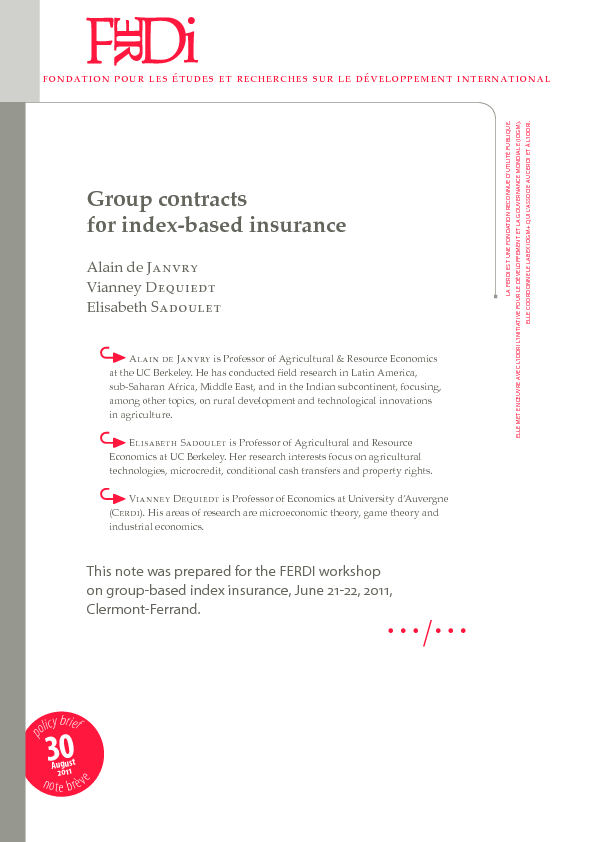Group contracts for index-based insurance

Index-based contracts are crucial innovations on the micro-insurance market. By making the contract contingent on the value taken by an objective and exogenous index, parties should manage to minimize transaction costs, in particular those due to imperfect and asymmetric information. In turn this innovation should allow poor people traditionally excluded from this market to have access to some insurance, most notably agricultural smallholders. In the last decade, many pilot programs have been set up throughout the developing world to evaluate index-based insurance products. So far, the individual willingness to adopt these new products has been low, even when they are bundled with other financial products such as credit. This led several actors to question the business model that consists in selling those products directly to the individual farmer and to develop other models where the index-based product is sold to a group or to an intermediary (see R. Leftley, brief 4, in Hill and Torero (2009)).
